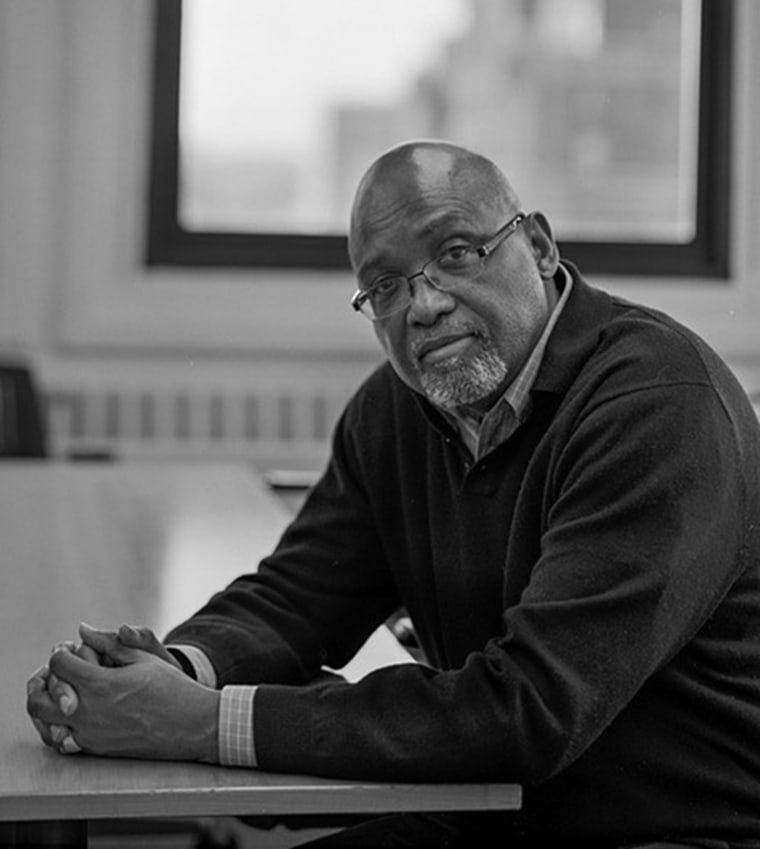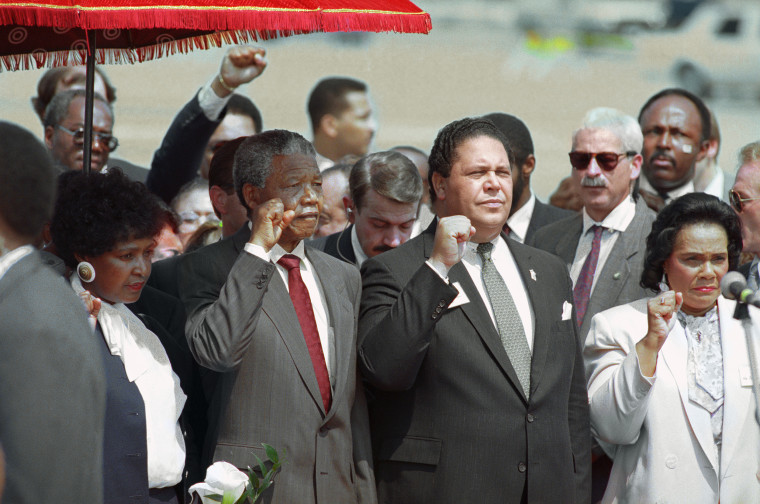Before Maynard Jackson Jr., no African-American had ever been mayor of a major city in the American South. In 1973, Jackson, a 35-year-old lawyer who served as Atlanta’s vice-mayor, took charge of the city with a whopping 60 percent of the vote, knocking incumbent Sam Massell out of City Hall.
The breakthrough sparked decades of change and controversy across three terms (1974-1982 and 1990-1994). From the police department to the airport that would one day bear his name, Jackson remade the civic landscape of the metropolis called “The City Too Busy To Hate.” He died in 2003 at the age of 65.

A new documentary “Maynard,” explores Jackson’s legacy in vivid detail. The film, which debuts Thursday at the DOC NYC Festival in New York, offers timely recognition of the mayor’s progressive policies, which bucked the status quo – even among the city’s black leadership.
Sam Pollard, the films' director and former editor for Spike Lee, said it was important to show Jackson's impact on African-Americans and "give this new generation of young people – black, white, Latin, Asian – an introduction to one of the most important politicians of the last half of the 20th century."
Vincent Fort, a 20-year member of the Georgia State Senate and a candidate in Atlanta’s recent mayoral primary, said Jackson's accomplishments still resonate today.
“He democratized Atlanta,” Fort said in a phone interview with NBC News. “He made Atlanta more of a cultural democracy, a racial democracy. He made sure that African-American business was part of the mainstream.”
Jackson also strived to fully integrate the Atlanta police department and assert more oversight from City Hall over its actions. Institutional racism and police brutality against black citizens is as volatile a subject as ever, but Pollard digs into the Jackson family’s own police-related tragedy. The film recounts how Jackson’s father, an activist and the prominent pastor of Atlanta’s Friendship Baptist Church, suffered legal and emotional repercussions after a white policeman riding a motorcycle slammed into his car in 1952. The officer lost a leg, and the senior Jackson died a year later.
“Atlanta likes to think of itself as a more progressive city, [but] black men were being shot at a high rate,” said Fort, who emphasized that police accountability remains an issue in the city. “The casual and systemic abridgment of human rights on the streets of Atlanta was not uncommon.”
Jackson's efforts also led to the appointment of A. Reginald Eaves, as the city's first African-American public safety commissioner. He faced criticism over the handling of Eaves, who resigned in 1978 amid charges that black candidates were cheating on police promotion exams.

Pollard touches on other rough patches in Jackson’s career, whose ambitions followed in the footsteps of his maternal grandfather, John Wesley Dobbs, a forceful civic leader who co-founded the Atlanta Negro Voters League.
“I just didn’t want to make it a sugary story,” the he said. “I wanted to show how complicated it was.”
The director began work on the film two years ago, with the cooperation of Jackson’s family, and makes extensive use of sometimes rare archival footage and an array of interview subjects, including the four black mayors who succeeded him. civil rights figures such as the Rev. Al Sharpton and Vernon Jordan, a childhood friend of Jackson’s who later became an adviser to President Bill Clinton, who also appears in the film.
Jordan recalled a pivotal day in both his and Jackson’s lives. As Atlanta high school students, they both played in the band. One afternoon, the band was asked to march down Peachtree Street on behalf of U.S. Sen. Richard Russell Jr., a notorious opponent of the civil rights movement, who declared his campaign for president.The two were reluctant to do it, but did it to protect the jobs of the principal and bandmaster.
“Maynard and I played with hand-me-down instruments and raggedy uniforms for Richard Russell,” Jordan told NBC News. “And 21 years later, Maynard Jackson was conducting the political symphony of Atlanta … That debate that took place in the band room was an eye-opener to the future that Maynard Jackson was going to hold.”
